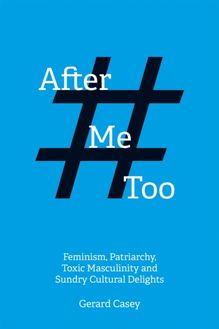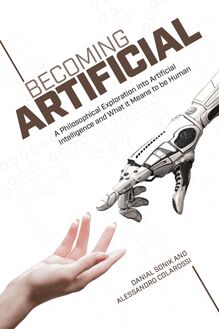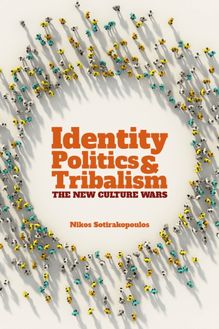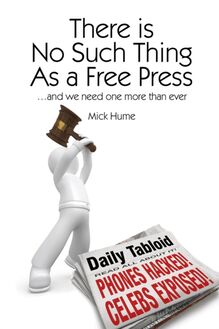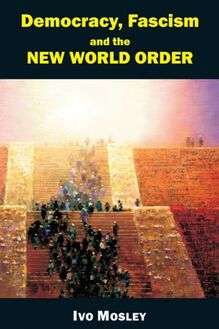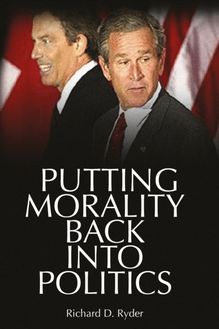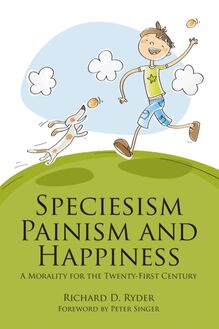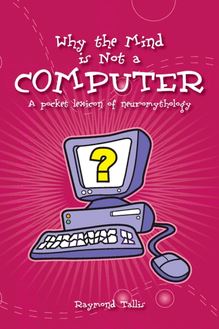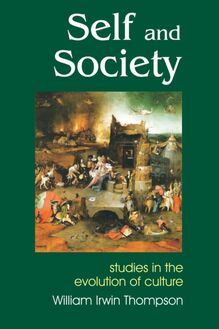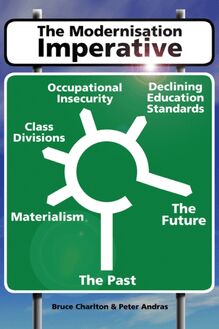-
 Univers
Univers
-
 Ebooks
Ebooks
-
 Livres audio
Livres audio
-
 Presse
Presse
-
 Podcasts
Podcasts
-
 BD
BD
-
 Documents
Documents
-
- Cours
- Révisions
- Ressources pédagogiques
- Sciences de l’éducation
- Manuels scolaires
- Langues
- Travaux de classe
- Annales de BEP
- Etudes supérieures
- Maternelle et primaire
- Fiches de lecture
- Orientation scolaire
- Méthodologie
- Corrigés de devoir
- Annales d’examens et concours
- Annales du bac
- Annales du brevet
- Rapports de stage
La lecture à portée de main
Vous pourrez modifier la taille du texte de cet ouvrage
Découvre YouScribe en t'inscrivant gratuitement
Je m'inscrisDécouvre YouScribe en t'inscrivant gratuitement
Je m'inscrisEn savoir plus
Vous pourrez modifier la taille du texte de cet ouvrage
En savoir plus

Description
Sujets
Informations
| Publié par | Andrews UK |
| Date de parution | 27 mars 2017 |
| Nombre de lectures | 0 |
| EAN13 | 9781845403645 |
| Langue | English |
Informations légales : prix de location à la page 0,0324€. Cette information est donnée uniquement à titre indicatif conformément à la législation en vigueur.
Extrait
Title page
The Right Road to Radical Freedom
Tibor R. Machan
SOCIETAS
essays in political
& cultural criticism
imprint-academic.com
Copyright page
Copyright © Tibor R. Machan, 2007
The moral rights of the author have been asserted.
No part of any contribution may be reproduced in any form without permission, except for the quotation of brief passages in criticism and discussion.
Originally published in the UK by Societas
Imprint Academic, PO Box 200, Exeter EX5 5YX, UK
Originally published in the USA by Societas
Imprint Academic, Philosophy Documentation Center
PO Box 7147, Charlottesville, VA 22906-7147, USA
2012 digital version by Andrews UK Limited
www.andrewsuk.com
Dedication
For Judy & Dave Threshie
Acknowledgments
I wish to thank the editors of the Journal of Private Enterprise , The Journal of Ayn Rand Studies , The Personalist , The Hoover Institution Press, and M&M Scrivener Press for permission to use materials in this book they have previously published. I want also to express my gratitude to Dick Wallace or Freedom Communications, Inc., the Pacific Research Institute and Chapman University for their support of my work on this and other projects.
Epigraph
Whether it comes from a despotic sovereign or an elected president , from a murderous general or a beloved leader, I see power as an inhuman and hateful phenomenon. ... I have always looked on disobedience toward the oppressive as the only way to use the miracle of having been born.
Oriana Fallaci
quoted in Margaret Talbot, “The Agitator,”
The New Yorker (June 5, 2006), p. 59
Preface: Why We Need Philosophy
In what sense is philosophy relevant to everyone’s life?
Although most people have probably not considered how philosophy can or does touch their lives, some simple examples may show this connection. When, in anger perhaps, someone blames the world for his misfortunes, he implies a basic belief - even if he later might wish to modify or abandon it. When someone declares his love of life, in some joyous moment, he, too, is expressing a view of the world in general. Such explicit statements as “Everything is relative ”, “Words mean whatever one wishes them to mean”, “None of us can help what we are”, “Human existence is without meaning or purpose”, and “Whatever the majority chooses is what should be done” all indicate very broad beliefs - ideas not just about one or two instances of a person’s life or of what he witnesses.
It is sometimes argued, however, that ideas are mere epiphenomenona , or even simply follow actions - William James thought this as do some contemporary neuro-physiologists. But this can be explained by reference to the fact that ideas develop and are not some kind of static object, they are themselves a kind of action and when they occur in a logical sequence, their impact may actually be ahead of them, in a sense, since the logic of the idea is already giving guidance to action. In any case, ideas undoubtedly matter, because even the idea that they do not is an idea with potentially important consequences.
Not Just Gabbing
Philosophy is something quite specific: it is a human activity of a certain kind, not just any variety of gabbing, speculating, or debating. In spite of the many differences among various philosophies, the field itself is specifiable. Philosophy has as its purpose the identification and study of the most basic facts of reality and our relationship to them .
From this abstract statement of what philosophy is we can now move on to fill in some of the details. First of all it will help to give an example of what some philosophers have considered a basic fact, and to suggest how human beings might relate to such a fact in their lives. Basic facts are rarely thought of in our everyday, normal experiences, since they are very obvious - just as on earth we rarely think about gravity, since it affects us always.
To characterize such facts, let us contrast them with the more ordinary kind. We often make note of such facts as that the moon is difficult to see in the daytime because the sun is bright, or that it is raining very hard in the Midwest. Such facts are of limited scope. Although they are simple enough to make evident, many other facts are required before these sorts can be understood and appreciated. In the first case, for example, the facts of the moon’s, the sun’s, and the daytime’s existence are presupposed. Many such facts are encountered each moment, every day, and throughout a lifetime. But these are not basic facts, since they depend on too many other facts.
Specific Facts versus General Facts
A basic or fundamental fact would be something different. It would have very broad scope and would be evident on a very wide scale. For example, let us assume that it is a fact that everything that exists must be composed of material substance, that it must have mass, dimension, and weight. If what we are now assuming were correct, then anything that could exist would be composed of matter. Such a fact, if it were a fact, would have the entire universe as its scope, and all other facts we might encounter would have to include it as a feature , as a “background” fact.
We, in turn, would relate to existence, to all of reality, in a way that would be directly influenced by this basic fact. Thus, when discussing whether something or other exists or could exist, the answer we would give would depend first of all on whether the proposed item is composed of matter. Suppose now that it is shown that what is proposed to exist is not composed of matter. Then if it were true that everything that exists is composed of matter, we could conclude that the proposed thing simply does not and could not exist. So the assumed basic fact that everything is material relates to human life as a sort of basic guide to what we should accept as possible. If materialism is true, then it is impossible for something to exist that is not composed of matter: therefore, we should not bother with any suggestions to the contrary (except as a curiosity, perhaps).
This is just one illustration of what basic facts might be, and of what sort of inquiries philosophers might conduct.
Why We Need Philosophy
Is there an important role for philosophy in human life?
One aspect of philosophy evident in the ordinary philosophical remarks cited earlier, as well as in all major philosophical systems and schools, indicates the answer to our question. We can already detect the indispensability of philosophy to human life. Recall that all of the statements listed at the beginning of this discussion are very broad in their scope. They cover or refer to many things, many individual events, relationships, actions, institutions, or elements of whatever subject matter they involve. When a person says, “Life is nothing but struggle”, the meaning of that statement includes all of life, from birth to death, without exception. “Words mean whatever one wishes them to mean” refers again to all words - even those used to make the statement. “You made your bed so you must lie in it” refers, metaphorically in this case, to all instances when a person chooses some course of action and is faced with the results.
If someone takes these thoughts seriously, and many do, it is very likely that such an individual’s life will reflect what is meant by them. A person will most likely have an attitude toward, an anticipation of, or a regard for life that conforms to the belief expressed - or to the same belief held in silence. To see the impact of philosophical ideas we need to consider what will happen when a person takes such ideas seriously and lives by them.
Pervasive Impact
It is most likely that those who take such ideas seriously will find their impact evident throughout their lives. This can be so whether the ideas are worked out in great detail or held as firm conclusions without close scrutiny. Even in what might be considered less reflective , less systematically intellectual cultures, there is clear evidence that ideas such as those we have cited have considerable impact - in the form of myths, sayings, religious writings, and the like.
It should also be stressed that virtually everyone has some such general ideas. Whether explicitly stated, self-consciously believed, or merely accepted by habit, such ideas influence one’s life. They sometimes govern entire cultures, even epochs of human history, as is evident today with Marxism throughout a considerable portion of the globe. In the last analysis, for philosophical purposes, the crucial issue is whether these ideas are correct. But their importance cannot be overstated.
We can go through life without ever becoming involved with horticulture, astronomy, or international relations, since these apply only within a limited range and only intermittently (though, of course, widely and often enough when compared with some other concerns). But philosophical ideas, by their nature, apply directly or indirectly to the basic features of existence and human life. For example, the philosophical idea that none of us can help what will happen in our lives pertains to all of everyone’s life! That surely is not a restricted scope, and if the claim is true, it can have considerable bearing on how we should understand ourselves and others - whether, for instance, we can ever meaningfully hold others responsible for criminal activity, credit ourselves or others with achievements , and so forth.
Philosophical Nutrition
As the most general field of inquiry, philosophical concerns reflect on everything people think about and do.
Obviously one can live without explicit philosophical knowledge or convictions. One can also l
-
 Univers
Univers
-
 Ebooks
Ebooks
-
 Livres audio
Livres audio
-
 Presse
Presse
-
 Podcasts
Podcasts
-
 BD
BD
-
 Documents
Documents
-
Jeunesse
-
Littérature
-
Ressources professionnelles
-
Santé et bien-être
-
Savoirs
-
Education
-
Loisirs et hobbies
-
Art, musique et cinéma
-
Actualité et débat de société
-
Jeunesse
-
Littérature
-
Ressources professionnelles
-
Santé et bien-être
-
Savoirs
-
Education
-
Loisirs et hobbies
-
Art, musique et cinéma
-
Actualité et débat de société
-
Actualités
-
Lifestyle
-
Presse jeunesse
-
Presse professionnelle
-
Pratique
-
Presse sportive
-
Presse internationale
-
Culture & Médias
-
Action et Aventures
-
Science-fiction et Fantasy
-
Société
-
Jeunesse
-
Littérature
-
Ressources professionnelles
-
Santé et bien-être
-
Savoirs
-
Education
-
Loisirs et hobbies
-
Art, musique et cinéma
-
Actualité et débat de société
- Cours
- Révisions
- Ressources pédagogiques
- Sciences de l’éducation
- Manuels scolaires
- Langues
- Travaux de classe
- Annales de BEP
- Etudes supérieures
- Maternelle et primaire
- Fiches de lecture
- Orientation scolaire
- Méthodologie
- Corrigés de devoir
- Annales d’examens et concours
- Annales du bac
- Annales du brevet
- Rapports de stage
